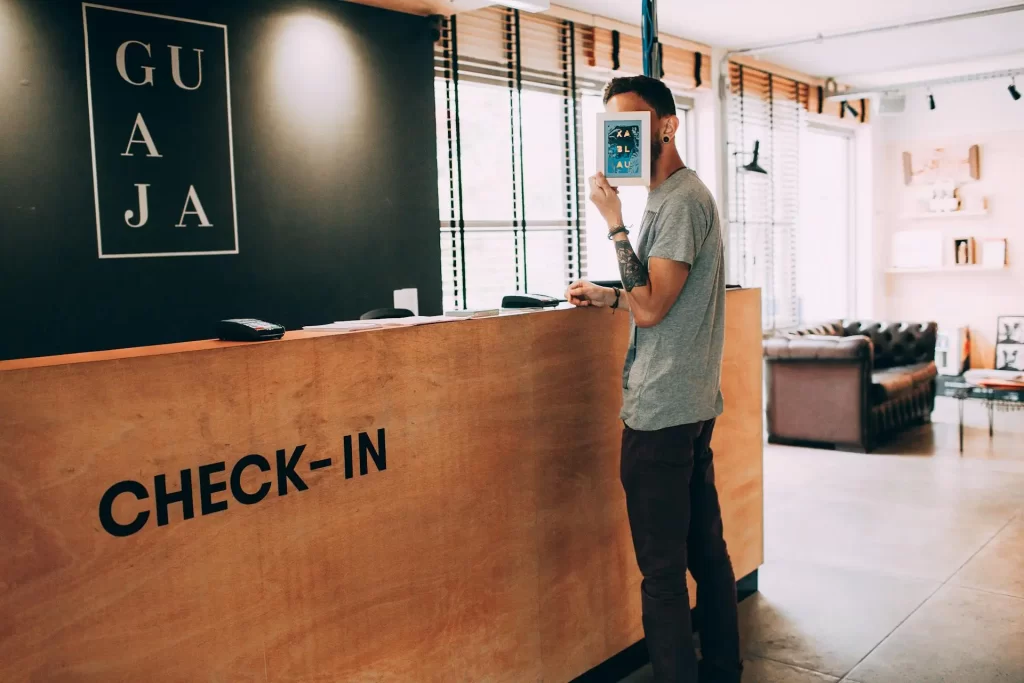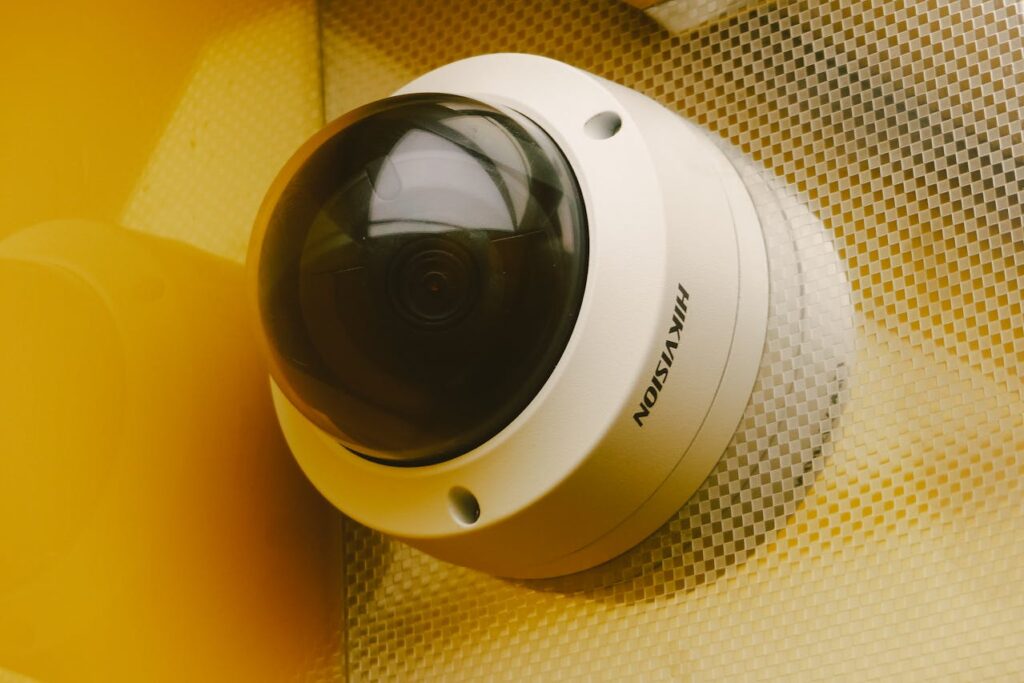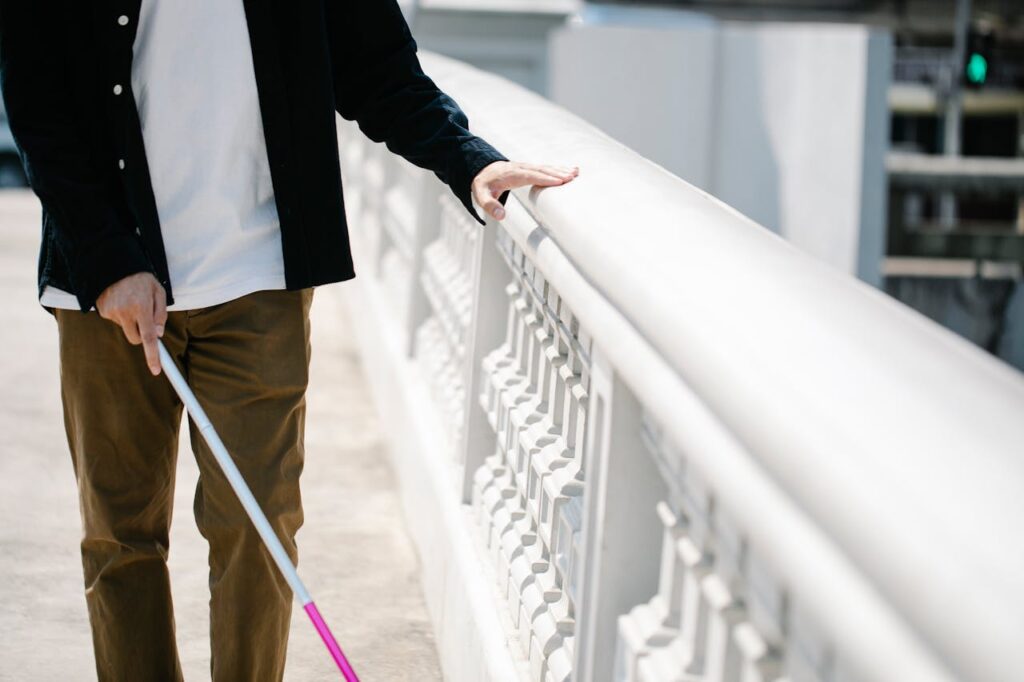
Your next trip is approaching and you’ve set your eyes on an Airbnb property you really like. After booking, you may have lingering questions — perhaps you’re unsure of the property’s amenities, convenience, safety, or saw some negative reviews that left you concerned.
While you shouldn’t bombard your host with a flurry of questions, it’s better to be safe than sorry; ask your host 2-3 pressing questions after browsing the listing’s details and reviews. Keep to the essentials so you don’t come across as bothersome and a potentially difficult guest!
That said, I’ve curated a list of 11 thoughtful questions you can ask your Airbnb host. As you plan your next trip, use this guide to ensure a seamless, stress-free stay — just as you’ve envisioned.
1. Is There a Dedicated Workspace or Desk?
If you’re planning to work remotely during your Airbnb stay, don’t underestimate the importance of a desk space. Many travelers realize this only after experiencing the discomfort of working from a couch or an unsuitable table, leading to back pain and headaches.
Make your own call, but consider that a seemingly perfect vacation home may be unideal if not functionally equipped for productivity.
Furthermore, while a listing might mention a “workspace”, this can vary from a proper desk with an ergonomic chair to a small dining table. If unsure, ask for specifics: Is there a dedicated desk? What kind of chair is provided? How fast and strong is the WiFi connection?
If you are a mobile professional, ensure you avoid a regretful subpar stay! Let this checklist act as your savior, guiding you to choose the right hotel or Airbnb for your next trip.
2. What’s the Check-In Process—Self Check-In or Meet-and-Greet?
The check-in process can vary across Airbnbs. Procedures range from self-check-in via keypads or lockboxes to a meet-and-greet with the host. The check-in process is usually made known to you after the booking is secured.
It’s critical to ensure no ambiguity: knowing the process helps you plan your arrival and departure. Some properties and hosts have restricted access hours and check-in times. Beware of restrictions (especially during early mornings and late nights) and ask for flexibility if needed.
3. Can I Store My Luggage Before Check-In or After Check-Out?
If your flight schedule doesn’t align with your Airbnb’s check-in/out times, good luck – you may experience the hassle of dragging your heavy luggage along, as you venture about the city.
Spare yourself some inconvenience by asking about the possibility of luggage storage. Some properties have storage lockers, while other hosts allow you to store your bags in the apartment after check-out for several hours.
If storage isn’t available, ask if your host recommends any nearby luggage storage facilities. Many cities have lockers at train stations, airports, or third-party services. Don’t be shy to ask, as it is likely not the first time an Airbnb host would’ve received this question – they can likely advise you.
4. How Safe Is the Neighborhood?
Your safety can be a concern depending on your location. If you’re visiting an unfamiliar neighborhood or area with a higher crime rate than you are accustomed to, it’s beneficial to soothe your nerves.
Browse guest reviews for insights on safety-related experiences. Additionally, don’t hesitate to ask the host about neighborhood security. For instance:
- Is the area well-lit and monitored – what’s the general atmosphere like?
- Are there specific scams, risks, or illegal activities to watch out for?
- Any areas or shops that are best avoided?
- Is the area safe to navigate both during daytime and nightime, especially for solo travelers?
5. Does the Building or Unit Have Security Features Like CCTV or Smart Locks?

This question is related to the above question but focuses on a different aspect of safety. Technological factors can impact your decision on whether to stay in a property:
- In a higher-crime destination, you may feel reassured if your building and unit are technologically well-equipped with security features.
- On the other hand, a neighborhood may feel safe, but the apartment itself could lack security.
If security is a priority, check with your host about the presence of security features. Prioritise staying in properties with keyless entry, plenty of security cameras, and even in-room smart tech and security features.
After being well-informed about security features, you can plan where and how to keep your laptop and valuables, such as using an in-room safe (if available) or whether to invest in additional tools such as a cable lock or anti-theft luggage/backpacks.
Related: Are Hotels Really Safer Than Airbnb? How to Cover Your Bases
6. Is the Area Pedestrian-Friendly?
Exploring a city on foot can be a fantastic way to immerse yourself in its atmosphere, but not all urban areas are equally pedestrian-friendly beyond the main tourist attractions.
You may find that being located within or very close to tourist hubs often ensures better pedestrian infrastructure. On the other hand, venturing further out can sometimes lead to issues like limited sidewalks and less reliable pedestrian crossings.
Crossing roads can be risky and near impossible at times, and getting from one point to another on foot can be a tedious mission.
I was surprised to find out that many parts of Kuala Lumpur are not well-connected on foot beyond popular neighborhoods like Bukit Bintang, KL City Centre, and Mont Kiara. As I stayed outside the city center, I spent most of my first trip there on Grab rides.
If exploring on foot is important, and you don’t prefer to spend on e-hailing rides the entire time, clarify with your host about pedestrian-friendliness. You can look at the map where your Airbnb is located for telltale signs – briefly research the neighbourhood if needed.
This article was originally published on unboundist.com. If it is now published on any other site, it was done without permission from the copyright owner.
7. Are There Elevators, Stairs, or Other Accessibility Barriers?

If you have mobility concerns or travel with others with such difficulties, you must do your due diligence before confirming a stay.
A property’s accessibility barriers may not be clearly stated in the listing. Some Airbnb listings are on higher floors without elevators, and others may have steep access points. Guest reviews may illuminate such accessibility barriers, but it’s best to clarify with your host if you have specific needs or simply want a hassle-free stay.
Some questions you can ask:
- Are there elevators in the building that operate at all times?
- Are there any steep hills, stairs, or other obstacles on the way to the property?
8. How Close Is Public Transport, and What Are the Operating Hours?
Understand whether the nearest public transport (e.g. train station, bus stop) is accessible by foot:
- How far is it from the property?
- What are the operating hours you should note? Some areas may have early cut-off times or irregular weekend service, which can impact your plans.
If there’s a considerable walking distance to the nearest public transport (e.g. more than 15min by foot), some properties offer shuttle buses to nearby malls, tourist spots, or airports. While the host may detail this in their listing or DM you about it, you can further clarify on the current bus schedules for public transport routes.
9. What’s the Best Way to Get to and From the Airport?
Airbnb hosts often provide useful local knowledge about the best transport options to and from the airport. Some properties are conveniently located near shuttle services or direct train routes, while others might require taxis or ride-shares.
If such information isn’t communicated to you, clarify, and ask about commute duration so you can plan your trip.
You can also ask about any potential traffic jams during the time you need to leave for the airport.
10. Are Visitors Allowed? Any Guest Limits or Restrictions?
This is a potential point of conflict between hosts and guests, especially if the property has a strict no-visitor policy.
Some hosts do not want visitors to stay overnight, while others do not want visitors on the premises entirely. For instance:
- Smaller apartments or co-living spaces may limit the number of visitors permitted in the property at any given time.
- If you’re staying with your host and renting just a room, they’re likely to be stricter with the no-visitor policy.
Clarify the no-visitor policy if you plan to have friends over at your Airbnb. This is even more important if you’re staying for a longer duration, such as a few weeks or more.
11. How Do Noise Levels and Natural Light Vary Throughout the Day?
Depending on your travel style, you may find the level of noise and natural light in your Airbnb factors that make or break your stay.
These factors are less crucial if you’re out exploring all the time, but more important if you prefer to maximise your Airbnb and enjoy its amenities. If you’re working remotely and using your Airbnb as a main workspace, these conditions matter for productivity.
Besides how you travel, neighborhood noise and activity matter at night, especially if you are a light sleeper.
Through the Airbnb listing, you can usually tell if the property is located near busy streets and nightlife areas. However, it’s usually hard to tell whether a property is well-lit or protected from excessive noise. If you have any doubts, confirm these details with your host.
Conclusion
All in all, a little research goes a long way in ensuring a stress-free Airbnb experience.
Before reaching out to the host, do your due diligence as a guest by thoroughly checking the listing details. Browsing guest reviews can help fill in the gaps. Check for all the factors you need for a seamless stay, from accessibility and safety to key amenities like toiletries, kitchenware, and dining essentials.
Thereafter, ask your host a few targeted questions to clarify your remaining doubts and help you feel confident in your choice. By taking these steps, you’ll set yourself up for a stress-free stay. Happy travels!